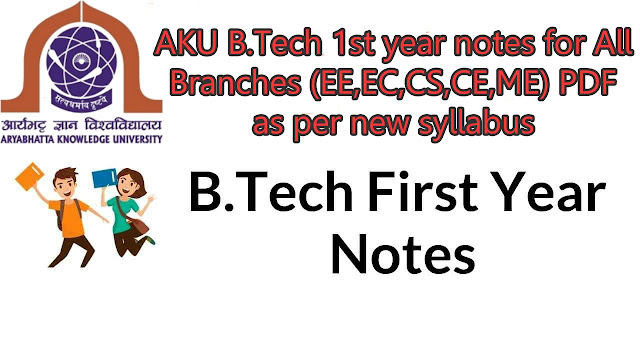NPTEL Developing Soft Skills And Personality Assignment 4 Answers 2023 (July- Oct) -week 4
The NPTEL Developing Soft Skills And Personality Assignment 4 for the period of July to October 2023 offers a comprehensive insight into various aspects of effective communication and telephone skills. This article dives deep into the lectures covered in this assignment, discussing Lecture 19: Communication: Significance Of Listening, Lecture 20: Communication: Active Listening, Lecture 21: Communication: Barriers To Active Listening, Lecture 22: Telephone Communication: Basic Telephone Skills, Lecture 23: Telephone Communication: Advanced Telephone Skills, and Lecture 24: Telephone Communication: Essential Telephone Skills. Let's embark on a journey of skill enhancement and self-discovery.
NPTEL Developing Soft Skills And Personality Assignment 4 Answers 2023 (July-Oct) - Lecture Insights
NOTE:- Answers will be updated shortly and it will be notified in our Youtube & Telegram Group. So Join Now
👉
Click Here To Get Solution
- Kishan demonstrates empathy and understanding by actively listening to Deepika’s concerns.
- Kishan stops himself from reacting to every single thing Deepika says and focuses on comprehending her situation.
- Riya creates visually appealing content showcasing her latest designs and shares them on platforms like Instagram and Pinterest.
- Riya collaborates with fashion influencers and bloggers to feature her designs and reach a wider audience.
- Eating noisily during a phone call
- Using unintelligible words during the phone call
- Multitasking while having a telephone conversation
- Cracking frequent unlaughable jokes and laughing out loud
- Show empathy and understanding toward the other person’s feelings.
- Choose an appropriate time and setting for delivering the news.
- If possible, offer alternative solutions or options to mitigate the impact of the bad news.
- Prepare in advance by planning the key points you want to convey.
- Siddharth politely requests the customer to hold and assures them that he will be as quick as possible.
- Siddharth expresses gratitude to the customer for their patience and understanding.
- Anagha listens attentively to Faizal’s perspective and asks open-ended questions to understand his challenges.
- Anagha sets clear performance goals and expectations for Faizal, ensuring they are realistic and achievable.
- Mohit is attending a business meeting, and his phone starts ringing. Since he forgot to put it on silent, he answers the call and takes the liberty to discuss personal matters.
- Miya is in a library, and her phone starts ringing. She takes the call.
- Familiarize herself with the telephone equipment and its functionalities.
- Use a format to note down important information during phone conversations.
- Follow professional etiquette and norms while making and receiving phone calls.
- Varun is emotionally overwhelmed, making focusing on the speaker’s message difficult.
- Rocky is experiencing discomfort due to an upset stomach, making it challenging for him to concentrate on the speaker.
- Janaki holds a strong antipathy toward the speaker, leading to biased perception and reduced attention.
- Sneha’s mindset is fixed, and she is resistant to new ideas, hindering her ability to listen with an open mind.
- Actively listening to her team members’ suggestions and feedback during recipe development.
- Encouraging open communication and collaboration with her team to ensure smooth kitchen operations.
- To share ideas and insights about the conference topics and enhance their collective learning experience.
- Prioritize uninterrupted creative time by scheduling specific hours for phone usage.
- moody
- To effectively convey emotions and portray characters convincingly on stage.
- Who among the following is a good communicator?
- Lipi actively engages in discussions, seeking clarification when needed and expressing her ideas concisely.
- Sooraj’s keen listening helps him comprehend the nuances of the opposing party’s arguments, enabling him to formulate well-informed counter-arguments.
- False
- True
- True
- False
Communication: Significance Of Listening
Effective communication is a two-way street, with listening playing a vital role. The ability to truly understand and empathize with the speaker enhances the quality of communication. Active listening is more than just hearing words; it involves interpreting nonverbal cues, asking clarifying questions, and maintaining focus. Engaging in active listening leads to improved relationships, reduced misunderstandings, and better problem-solving.
Communication: Active Listening
Lecture 20 delves into the art of active listening. This skill goes beyond merely hearing words; it involves giving your full attention to the speaker and providing verbal and nonverbal cues that show your engagement. Active listening fosters rapport, trust, and deeper connections with others. It involves maintaining eye contact, nodding, and using encouraging verbal cues like "I see," "Tell me more," and "That's interesting."
Communication: Barriers To Active Listening
In Lecture 21, we explore the barriers that hinder effective active listening. These barriers include preconceived notions, distractions, cultural differences, and personal biases. Recognizing and addressing these barriers is essential for fostering meaningful communication. By overcoming these obstacles, we can create a more inclusive and empathetic environment for communication.
Telephone Communication: Basic Telephone Skills
Lecture 22 introduces the fundamental skills required for effective telephone communication. Answering the phone promptly, introducing oneself clearly, and speaking with a polite and friendly tone are the building blocks of successful telephone conversations. These skills are especially important in professional settings, where the first impression matters.
Telephone Communication: Advanced Telephone Skills
Building upon the basics, Lecture 23 delves into advanced telephone communication skills. This includes handling difficult callers, resolving complaints, and conveying empathy over the phone. By using appropriate language, active listening, and problem-solving techniques, you can navigate challenging conversations with finesse and professionalism.
Telephone Communication: Essential Telephone Skills
Lecture 24 emphasizes the essential telephone skills that everyone should possess. Clear and concise communication, effective call transferring, and leaving professional voicemails are key components. These skills ensure that your telephone interactions are efficient and leave a positive impression on callers.
FAQs
Q: How can active listening improve my relationships?
A: Active listening enhances understanding, empathy, and connection in conversations, leading to improved relationships and reduced conflicts.
Q: What are the barriers to active listening?
A: Barriers include distractions, biases, cultural differences, and preconceived notions that hinder the ability to truly engage with a speaker.
Q: Why are telephone skills important?
A: Telephone skills are vital in both personal and professional settings, as they contribute to effective communication, strong first impressions, and customer satisfaction.
Q: How can I handle difficult callers?
A: Handling difficult callers involves maintaining composure, empathizing with their concerns, and finding solutions while maintaining professionalism.
Q: What are essential telephone skills?
A: Essential skills include clear communication, proper call transferring, and leaving concise voicemails to ensure efficient and professional telephone interactions.
Q: Where can I find more resources on improving soft skills?
A: You can explore reputable websites like Wikipedia's Soft Skills page for in-depth information and valuable resources.
Conclusion
Mastering soft skills and effective communication is an ongoing journey that enriches both personal and professional aspects of life. The NPTEL Developing Soft Skills And Personality Assignment 4 for the period of July to October 2023 provides a comprehensive platform to enhance communication and telephone skills. By embracing active listening, overcoming barriers, and honing telephone communication abilities, you can elevate your interactions and make a lasting impact. So, seize the opportunity to develop these essential skills and embark on a path of continuous growth.





